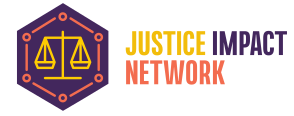Serving Time in Jail and Prison
What You Need to Know About Finding a Lawyer
State Specific-NY
Finding a lawyer to represent you on your Criminal case depends on whether you can afford a lawyer. If you cannot afford to hire a lawyer, you will have one assigned to you by the court.?
Jail Diversion/Court Liaison Program
State Specific-CT
Jail Diversion/Court Liaison programs provide court-based services to persons with psychiatric and co-occurring (mental illness and substance abuse) disorders who are arrested on minor offenses. The primary function of the program is to facilitate access to appropriate treatment services by providing assessment, referral, and linkage to community mental health services. Diversion staffs work to maintain individuals in community treatment services, inform court personnel of treatment compliance, and facilitate access to mental health services through contacts within the Department of Correction when an individual is incarcerated
Contact: Danielle Ebrahimi, LPC
Phone: 860-262-5728; Danielle.Ebrahimi@ct.gov
Jail Diversion Substance Abuse Program (JDSA)
State Specific-CT
The JDSA program provides immediate admission to residential detox and/or intensive residential treatment on the day of arraignment or rapid admission to IOP for adults in the Hartford courts with substance dependence who would otherwise be jailed. Services include referral to aftercare, intensive case management, sober house rent subsidy, other transitional housing options, client supports, monitor compliance, and compliance report to court.
Contact: Danielle Ebrahimi, LPC
Phone: 860-262-5728; Danielle.Ebrahimi@ct.gov
Women's Jail Diversion Program (JDW)
State Specific-CT
JDW serves women at risk of incarceration in New Britain, Bristol, and New Haven courts. Comprehensive treatment and support services promote recovery among women with histories of trauma through immediate access to a trauma informed and comprehensive system of care. Services include treatment for trauma, mental illness, and substance abuse as well community support services and limited transitional housing.
In addition to referrals from court, JDW accepts referrals from Probation and Parole. The program achieves significant reduction in incarceration and in future arrests.
Contact: Danielle Ebrahimi, LPC
Phone: 860-262-5728; Danielle.Ebrahimi@ct.gov
Alternative Drug Intervention (ADI)
State Specific-CT
ADI provides intensive outpatient substance abuse treatment to 100 to 120 New Haven residents per year. It is the successor to the New Haven Drug Court, providing intensive case management, basic needs, employment, education and linkage to 12-Step groups. Eighty-five percent of participants successfully complete the 6 month treatment program without re-arrest.
Office of Pretrial Interventions
State Specific-CT
The Office of Pretrial Interventions operates two programs under CT General Statutes 54-56g and 54-56i, respectively, to serve people referred by the court:
I. Pretrial Alcohol Education Program(PAEP)
II. Pretrial Drug Education Program(PDEP)
Contact: Marti Kardol, LPC
Mail: Russell Hall, CVH, Box 351, Middletown, CT 06457
Phone 860-262-5812; fax 860-707-1961; Martina.Kardol@ct.gov
Community Recovery Engagement Support and Treatment Center (CREST)
State specific-CT
CREST serves up to 30 individuals in New Haven who would not otherwise be diverted from or released from incarceration if not accepted into the program. The intensive day reporting program provides daily monitoring and structured skill building and recovery support services for participants. Services are provided in collaboration with clinical services at the DMHAS-operated Connecticut Mental Health Center to ensure comprehensive, individualized treatment.
Contact: Colette Orszulak, MPH, BSN
phone 860-262-6296; fax 860-262-5841; Colette.Orszulak@ct.gov
Advanced Supervision and Intervention Support Team (ASIST)
State Specific-CT
ASIST is the product of a unique collaboration among the Judicial Branch Court Support Services Division (CSSD), the Department of Correction, and the Department of Mental Health and Addiction Services. The program was developed to make existing Alternative to Incarceration Centers an accessible diversionary option to persons with significant psychiatric disorders.
ASIST is able to meet the unique needs of clients who require both packages of services - judicial supervision and mental health and substance abuse recovery services provided by DMHAS and CSSD treatment service providers. The ASIST clinician forms a stable case management link that coordinates the services delivered by the AIC/service provider partnership, and closely monitors the impact of these services on client functioning and quality of life. ASIST also includes a component of skills training and cognitive behavioral intervention to reduce recidivism.
Contact: Marti Kardol, LPC
phone 860-262-5812; fax 860-707-1961; Martina.Kardol@ct.gov
Sierra Pretrial Center
State Specific-CT
The SIERRA Pre-Trial Center is a residential program for adults with serious psychiatric disabilities who are in jail awaiting court disposition of charges and can be safely released to the community in a structured residential program. This program is a collaboration with the Judicial Branch Court Support Services Division that is operated by a private agency with clinical services provided by the DMHAS-operated Connecticut Mental Health Center. Services offered include a comprehensive program of case management, psychiatric monitoring, medication monitoring, motivational enhancement, cognitive restructuring and training, consistent supervision and supportive services. Sierra’s goal is to provide a safe transition to the community, enhance and individual’s ability to live successfully in the community and minimize their risk of recidivism.
Contact: Danielle Ebrahimi, LPC
phone: 860-262-5728; Danielle.Ebrahimi@ct.gov
After Incarceration: A guide to Helping Women Reenter the Community
General
This guide provides an overview of topics and resources for serving women who are reentering the community after a period of incarceration. It is intended to increase knowledge of specific issues that women often face during reentry and to provide relevant resources to providers who can help them succeed. The guide is presented in a “checklist” format to provide a brief overview of considerations necessary when working with women who are justice involved.

